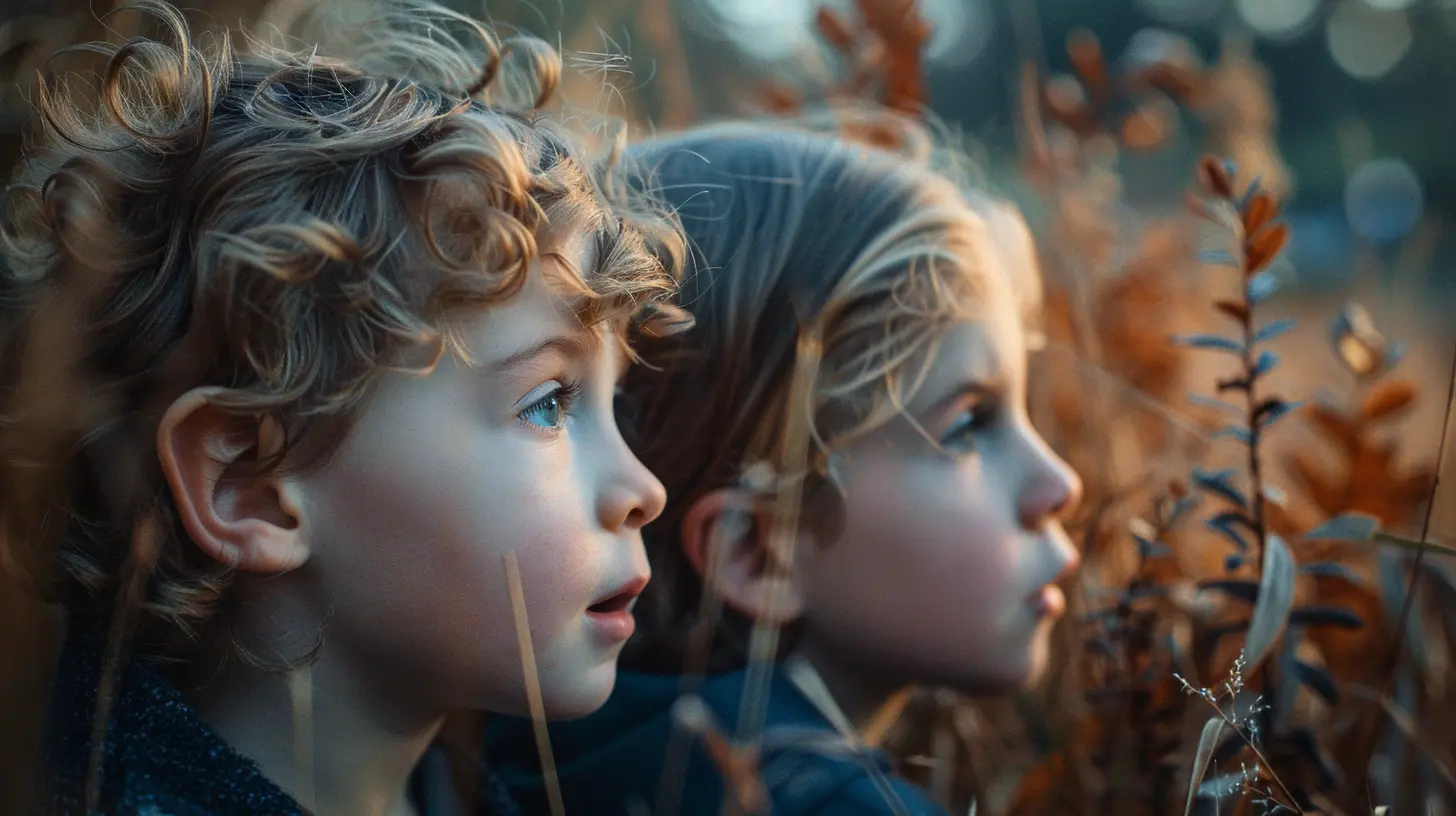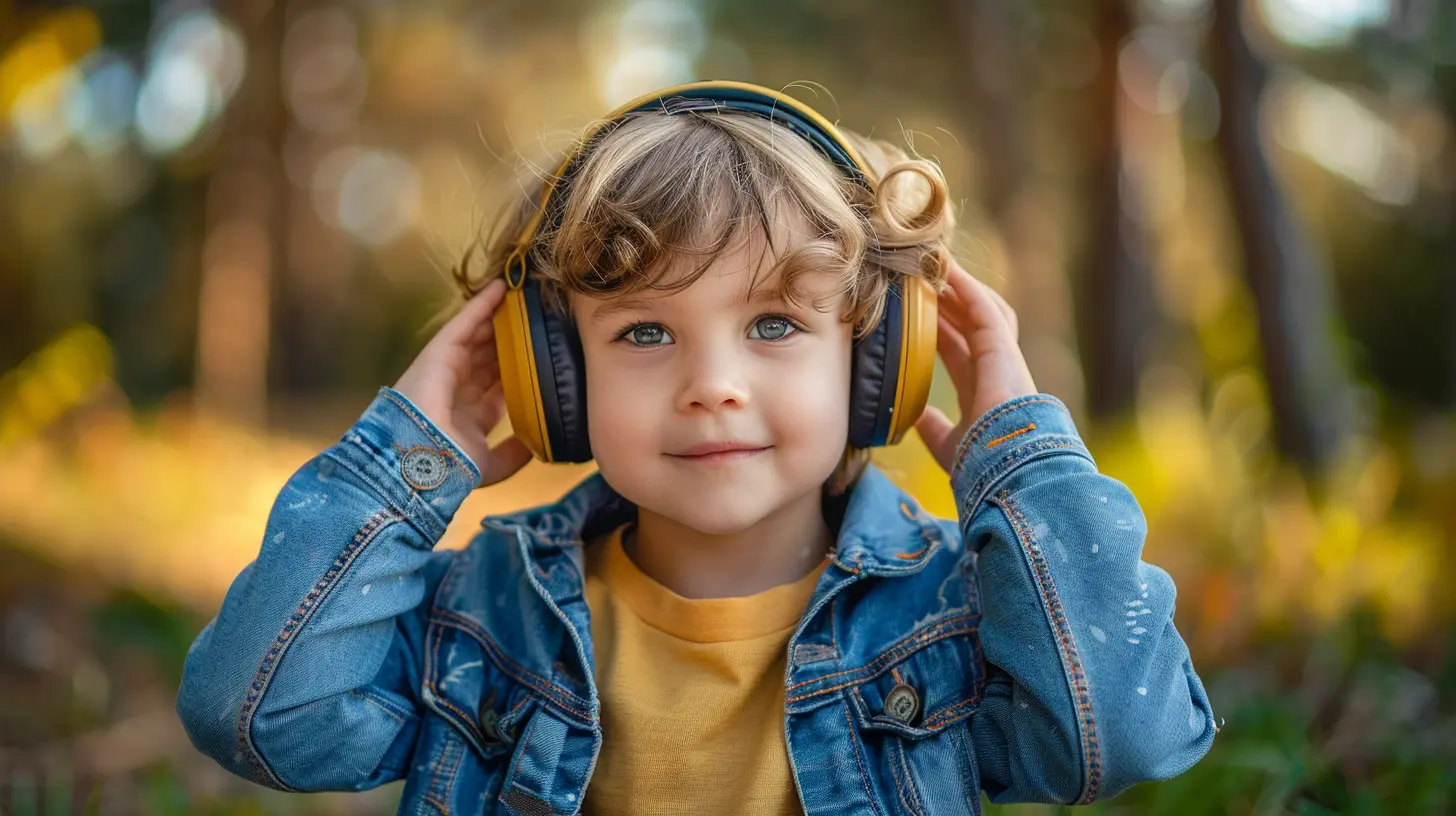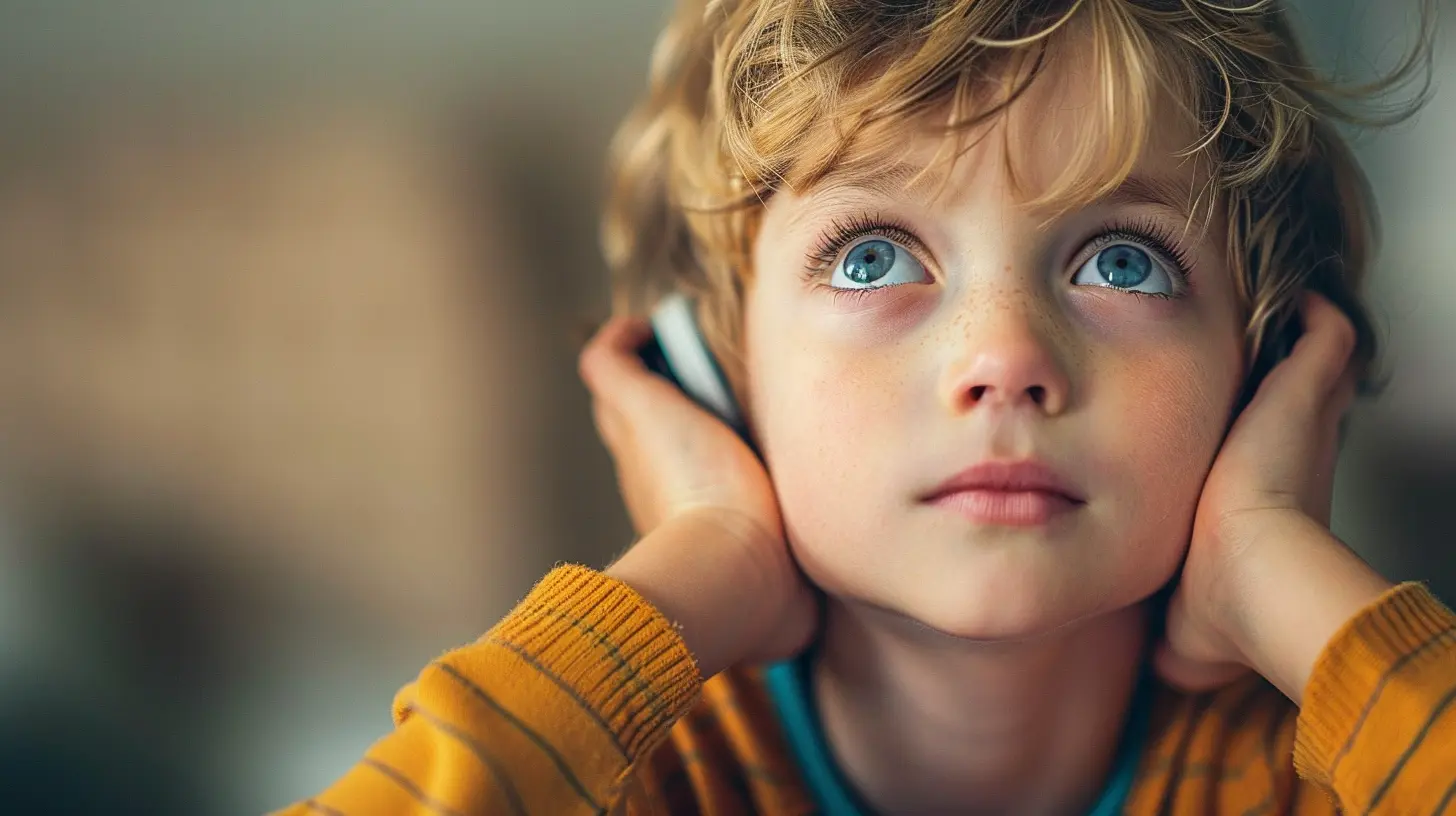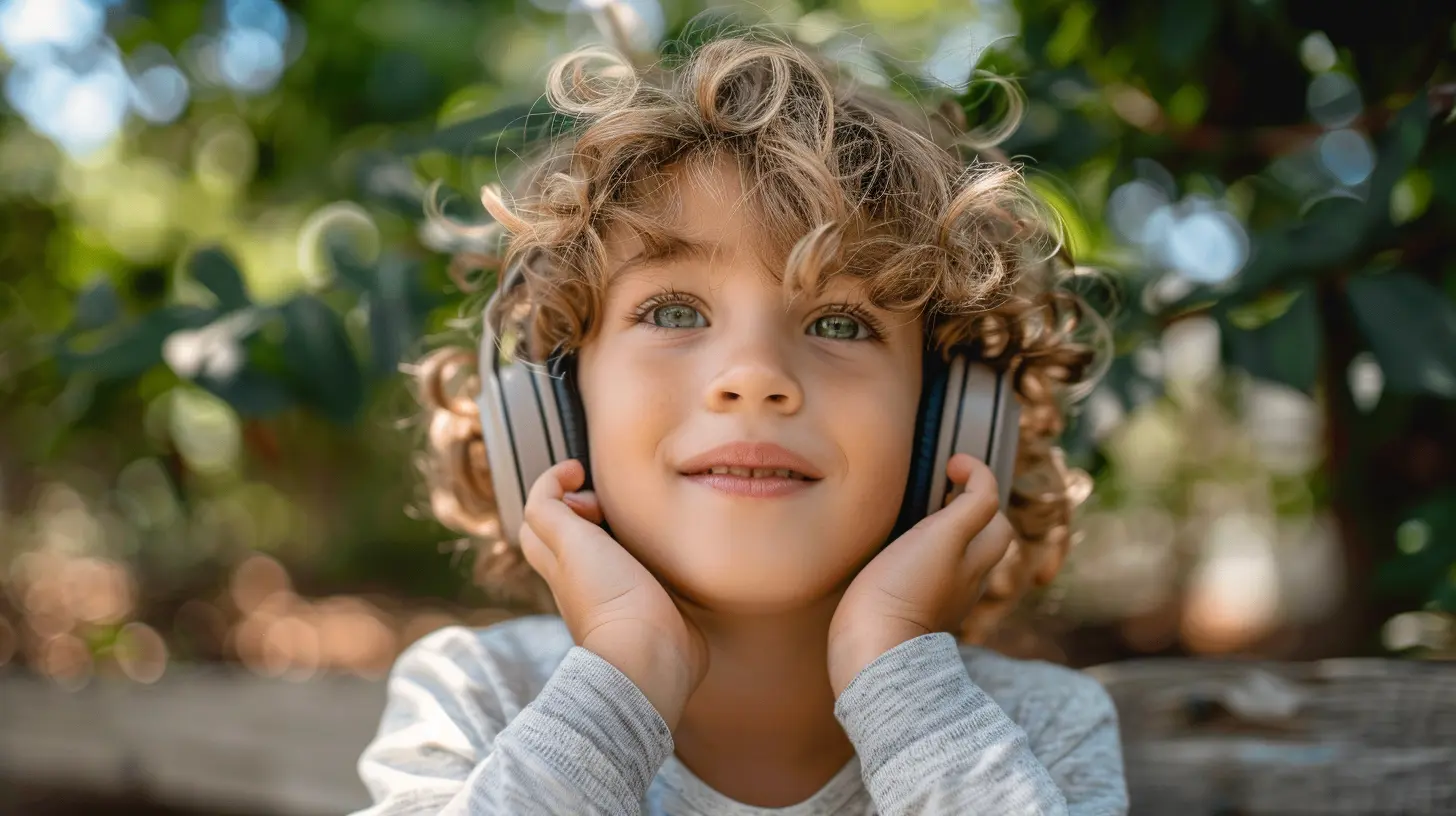Why Listening is Essential to Teaching Empathy to Your Child
16 February 2025
Empathy is often regarded as one of the most crucial traits a child can develop. It's the ability to understand and share the feelings of others—a skill that makes the world a kinder, more compassionate place. But let's be real for a moment: Teaching empathy is no easy feat. You can't just hand your child a textbook and expect them to become empathetic overnight. Empathy is nurtured through everyday interactions and, surprisingly, one of the best ways to start is by simply listening.
Yup, you heard that right. Listening—not just to your child, but teaching them how to listen to others—is foundational in developing empathy. But why is listening so crucial in this process? How does it foster empathy? In this article, we’ll dive deep into the connection between listening and empathy, and most importantly, how you can guide your child to become a better listener and, in turn, a more empathetic person.

What Is Empathy and Why Does It Matter?
Before we go down the rabbit hole of listening, let’s first make sure we’re all on the same page about empathy itself. Empathy goes beyond just feeling sorry for someone else. It’s about stepping into someone else's shoes and truly understanding their emotions, even if their situation or experiences differ from your own.Cognitive and Emotional Empathy
Empathy generally falls into two categories—cognitive and emotional empathy.- Cognitive empathy is when you can understand what someone else is thinking, even if you don't feel the same way. It's all about perspective-taking.
- Emotional empathy is more instinctive and involves feeling what someone else feels. You know that gut-wrenching sadness you experience when a friend is going through something rough? That's emotional empathy.
Both are crucial, but here's where listening comes into play: You can't even begin to understand someone else’s emotions or thoughts if you’re not truly tuned into what they are saying. That's where the magic of listening comes in.

The Role of Listening in Developing Empathy
Listening Isn't Just About Hearing
Listening and hearing may sound like the same thing, but they’re worlds apart. Hearing is a passive act—you hear the birds chirp outside or the background noise of the TV. But listening? That's an active process. It requires concentration, reflection, and, more importantly, an openness to understanding others.When we teach children to listen actively, we’re not just teaching them to absorb words. We’re helping them decode the emotions, intentions, and unspoken feelings behind those words. This is where empathy starts to take root.
Listening Helps Children Tune Into Others’ Emotions
Children are naturally self-centered (and it's totally fine!). It’s part of their developmental stage. But as they grow, they need to start focusing on others as well. When your child listens to their friend talk about how they lost their favorite toy or how they had a bad day, they begin to recognize emotions like sadness, frustration, or joy in others.Think about this: If your child is zoning out while their friend is talking, they're missing out on valuable emotional clues. But if they’re actively listening, they can start to connect those dots—"Hmm, Lucy sounds really sad. I wonder what I can do to make her feel better?" Boom, that's empathy in action.
Listening Builds Trust and Connection
Here’s a little secret: Listening is a superpower when it comes to building strong relationships. And those strong relationships are fertile ground for empathy to grow.When a child feels heard by you—or anyone else—they feel validated. They understand that their thoughts, feelings, and experiences matter. This trust encourages them to open up more, and as a result, they also become more likely to listen attentively to others. That give-and-take nature of relationships helps children realize that empathy is a two-way street.

Teaching Your Child the Art of Listening
Okay, now that we’ve established why listening is the golden ticket to developing empathy, let’s get into how you can actually teach your child to listen better.Lead by Example: Be an Active Listener Yourself
It all starts with you. If you’re tuning out your child, glancing at your phone mid-conversation, or half-listening while cooking dinner, you're sending the message that listening isn’t essential. (No judgment here, we’ve all done it!)Instead, make a conscious effort to be an active listener. Put down your phone, make eye contact, and truly engage with what your child is saying. Reflect back on what they’ve shared—“So, you were upset because you didn’t get to play at recess. That must have been frustrating.” By valuing their voice, you’re showing them how important it is to value the voices of others.
Teach the "Pause and Reflect" Method
Children are often eager to jump into a conversation and sometimes interrupt without realizing it. Teach your child the "pause and reflect" technique:1. Pause: Before responding, encourage your child to take a moment to absorb everything the other person has said.
2. Reflect: Have them think about how the other person might be feeling or what they might need from the conversation. They don't have to respond right away—just encourage them to process it.
This teaches patience, mindfulness, and gives their empathetic instincts room to blossom.
Practice Active Listening Through Play
You can actually turn listening exercises into fun activities that your child will enjoy. Play games like "Telephone," where one person whispers a message to the next, and it gets passed along. The end result is always hilariously wrong, but along the way, your child is practicing listening carefully.Another idea? Try role-playing different scenarios. One day you’re the upset friend, and the next day they are. These games will make listening and empathy development feel more like an adventure rather than a chore.
Encourage Open-Ended Conversations
It's easy to fall into the trap of asking your child questions that require one-word answers, like "Did you have a good day at school?" Instead, ask open-ended questions that encourage deeper conversations, such as, "What was the best part of your day?" or, "How did you feel when that happened?"When conversations start to go deeper, your child will naturally have to listen more carefully, and you’ll both reciprocate with thoughtful responses.
Promote Empathy Discussions Through Books and Stories
Books and stories are powerful tools for empathy-building. When children read or hear stories about characters in difficult situations, they learn to appreciate others' perspectives.Discuss the emotions of the characters after reading a story: “How do you think the character felt when that happened? What would you have done in their shoes?” These discussions force children to listen not just to the words, but also to the emotional undercurrents of the story—something that sharpens their empathetic responses.

Why Listening and Empathy Matter in a Larger Context
Beyond Childhood: Empathy as a Life Skill
The benefits of teaching your child to listen don't stop in childhood. One day, they'll be navigating complex social situations—whether it's on the playground or in the office—and empathy will be their guiding light. Empathetic individuals are not only more successful in relationships but also in collaborative settings. They thrive in team environments, create strong friendships, and learn to manage conflicts effectively.Imagine your child growing up to be the kind of person who not only hears but understands those around them. That is someone who will make a meaningful impact on the world.
Empathy Builds a Kinder World
In a world often dominated by division, uncertainty, and fast-paced interactions, empathy could not be more important. When you teach your child to listen and empathize, you're contributing to a kinder, more compassionate society. And we all know the world could use a bit more of that, right?Conclusion: Listening Is Key to Empathy
At the core of empathy lies one crucial skill: listening. By teaching your child to listen actively, you’re giving them the keys to emotional understanding and relational success. It's not just about hearing words—it's about understanding the feelings, thoughts, and needs behind those words. Empathy helps build deeper connections, solve conflicts, and make the world a better place for all of us.Start by listening to your child, encourage them to listen to you, and the empathy will naturally follow. Who knows? You might even find that in teaching your child this important life skill, you become a better listener—and a more empathetic person—yourself.
all images in this post were generated using AI tools
Category:
Teaching EmpathyAuthor:

Tara Henson
Discussion
rate this article
13 comments
Mercy Roth
Listening is the cornerstone of empathy. When we actively listen to our children, we validate their feelings and experiences, fostering an environment where they can learn to understand others. This transformative practice not only strengthens our bond but also equips them with the essential skills to navigate relationships throughout life.
April 1, 2025 at 4:51 AM

Tara Henson
Thank you for your insightful comment! I completely agree—active listening is indeed vital for nurturing empathy and building strong connections with our children.
Maren Miller
This article beautifully highlights the importance of listening in nurturing empathy. By truly hearing our children, we equip them with essential skills for understanding others. Your insights will inspire many parents to foster deeper connections and compassionate hearts. Well done!
March 9, 2025 at 5:10 AM

Tara Henson
Thank you for your kind words! I'm glad you found the article valuable in promoting deeper connections and empathy in our children.
Cerys Hamilton
Listening shows children they're valued and fosters open communication, creating a safe space for them to express feelings and develop empathy.
March 7, 2025 at 5:33 PM

Tara Henson
Thank you for highlighting the importance of listening! It truly is foundational in nurturing empathy and open dialogue in children.
Pia McQuillan
Listening nurtures empathy wonderfully! ❤️
March 7, 2025 at 5:47 AM

Tara Henson
Absolutely! Listening is a powerful tool for fostering empathy and understanding. Thank you for your thoughtful comment! ❤️
Reese Collins
Listening is key! It fosters understanding and connection, helping children develop empathy and navigate their relationships with compassion.
March 6, 2025 at 5:23 AM

Tara Henson
Absolutely! Listening truly lays the foundation for empathy, enabling children to connect with others' feelings and build meaningful relationships.
Yolanda Wheeler
In the gentle art of listening, hearts awaken, Where whispers of understanding softly taken, A child's world blooms, empathy's grace, In every shared moment, a warm embrace. With open ears, we weave life’s song, Teaching love’s language, where all belong.
March 2, 2025 at 3:47 PM

Tara Henson
Thank you for beautifully capturing the essence of listening! It truly is the foundation for nurturing empathy in children and fostering deep connections.
Yolanda Montgomery
Listening to your child is like finding the Wi-Fi password to their emotions—unlock it, and suddenly you’re connected to their world, complete with giggles and the occasional meltdown!
February 26, 2025 at 5:28 PM

Tara Henson
Absolutely! Listening truly opens the door to understanding and empathy, allowing us to connect deeply with our children's emotions.
Rivera McKinnon
Listening truly nurtures compassionate hearts.
February 26, 2025 at 5:14 AM

Tara Henson
Thank you! Listening is indeed a vital skill that fosters empathy and understanding in children.
Jinx McNaughton
Listening is the cornerstone of empathy. By truly hearing our children, we model understanding and compassion. This vital skill will empower them to navigate relationships with kindness and awareness throughout their lives.
February 23, 2025 at 5:19 PM

Tara Henson
Thank you for your insightful comment! I completely agree—active listening is crucial in nurturing empathy and equipping children with the tools for meaningful relationships.
Ranger McElveen
Listening nurtures understanding; empathy flourishes in the space between voices.
February 20, 2025 at 5:43 AM

Tara Henson
Thank you for your insightful comment! Absolutely, listening creates a vital foundation for empathy, allowing deeper connections and understanding to thrive.
Nathaniel Wilson
Listening fosters understanding; it's the heart of teaching empathy.
February 18, 2025 at 3:24 AM

Tara Henson
Thank you! Absolutely, active listening is crucial in nurturing empathy and fostering deeper connections.
Virginia McMeekin
Listening models empathy, helping children understand others' feelings. Practicing this skill fosters compassionate, emotionally intelligent future adults. A vital parenting tool!
February 17, 2025 at 4:58 PM

Tara Henson
Thank you for your thoughtful comment! I completely agree—listening is indeed a crucial skill in nurturing empathy and emotional intelligence in children. It sets the foundation for compassionate future adults.
Alessia McLain
Absolutely! Listening fosters deep connections! ❤️
February 16, 2025 at 5:47 AM

Tara Henson
Thank you! Listening truly is the key to building strong, empathetic relationships. ❤️
MORE POSTS

How to Avoid a Sugar Overload During Holiday Seasons

How Emotional Regulation Ties into Developing Empathy

Guilt-Free Ways to Prioritize Yourself After Baby

Teaching Life Skills by Practicing Active Parental Engagement

Managing Stress as an Expecting Parent

Talking About Divorce from a Child's Perspective: What They Need to Hear

Essential Postpartum Recovery Items You May Have Overlooked

Healing Kids' Sense of Home and Belonging After Divorce

Empathy in the Classroom: Helping Kids Build Connections at School